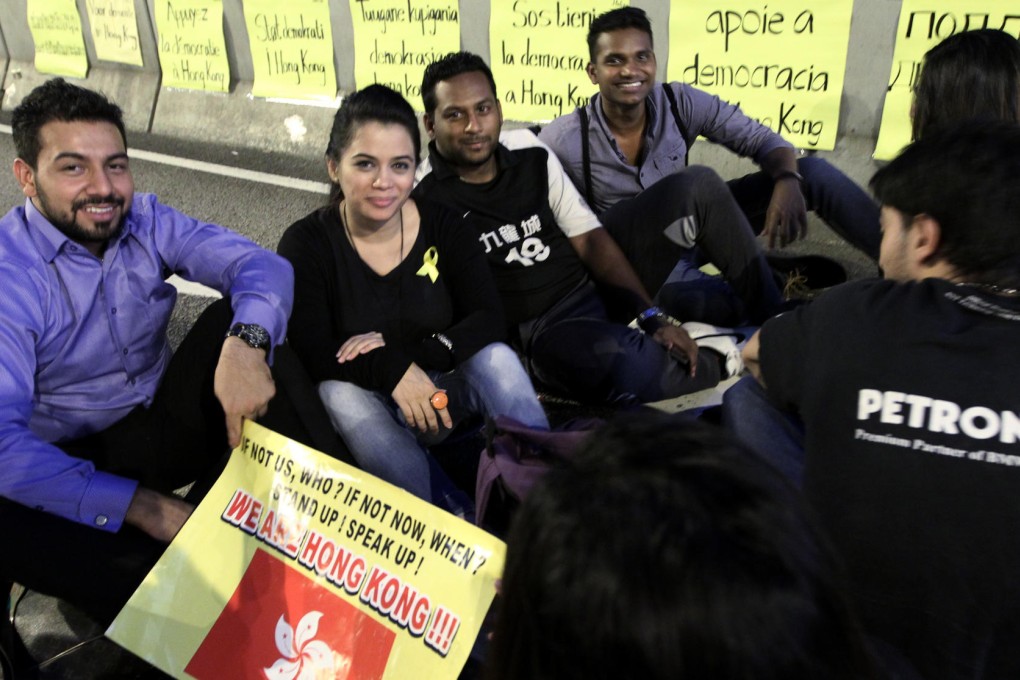Occupy protests bring acceptance for ethnic minority youngsters
Despite fearing possible police retribution, young ethnic minority Hongkongers joined the protests in the past week, feeling more like part of the city than ever before.

Despite fearing possible police retribution, young ethnic minority Hongkongers joined the protests in the past week, feeling more like part of the city than ever before.
Amid applause and cries of encouragement from Chinese locals, various nationalities joined forces to march in the streets with homemade banners, exercising their rights.
Jeffrey Andrews, of Indian origin, said: "Some in our community are afraid to come out [to protest] because they are scared of being identified and singled out later on."
Being of another race meant they could easily be identified in a crowd, and the lack of protection against discriminatory acts meant they could easily become targets, said Andrews.
"The current racial discrimination ordinance does not specify whether government and government functions need to adhere to it," said executive director of ethnic minority advocacy NGO Unison, Phyllis Cheung.
The protests struck a chord with the younger ethnic minority generation - many of whom are third- or fourth-generation Hongkongers - to a point where they joined the sit-ins in protest at what they saw as police violence and a government that has ignored Hongkongers' voices.